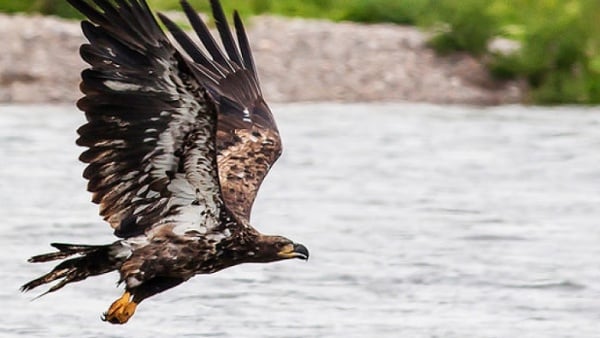
Read on for updates on Indigenous funding programs, precedent setting impact benefit and resource management agreements, and stories of prosperity, jurisdiction and stewardship in action.
Indigenous Prosperity
First Nation mat supplier, Moccasin Trails, makes inroads in the North
Moccasin Trails Engineered Road Access Matting Solutions in an Indigenous business supporting communities in receiving benefits from development happening in their traditional territories. The company is a provider of industrial matting and portable bridges for construction sites. These mats and bridges are commonly used in oil and gas project sites in Western Canada and are starting to gain traction in Northern Ontario as an opportunity for increased Indigenous business participation and community benefits from resource projects in the region. We're excited to see this Indigenous business flourish and for communities to see greater benefits from the natural resource and infrastructure projects happening in their Traditional Territories and ancestral lands.
Indigenous Jurisdiction
Indigenous Planning: Six Examples of Creative Engagement that work
We know that having as many people from your Indigenous nation engaged in your land use planning process as possible is a powerful way to ground the plan in your nation’s values, visions and priorities. But people are busy. Your planning process is competing with the demands of family, health, school, and work commitments. How many of us would like to be involved but end up feeling disconnected from what’s going on in our communities, convinced we don’t have anything to contribute? In this latest blog from our Indigenous Planning series we share 6 great examples from our client communities of creative engagement done right.
MMIWG Inquiry Final Report and Calls for Justice look at the role of Resource Extraction and Development Companies
One of the key themes that emerged from the Missing and Murdered Indigenous Women and Girls (MMIWG) Inquiry was the role that resource extraction and development industry plays in amplifying violence against Indigenous women and girls in project host communities. As part of the Inquiry's Final Report a section titled, "Deeper Dive: Resource Extraction Projects and Violence Against Indigenous Women and Girls" took a closer look at this issue (see pgs 584 - 594 of the MMIWG Final Report Vol 1a). Along with the Deeper Dive, the Calls to Justice 13.1 to 13.5 identify actions that resource extraction and development industries can take to begin addressing violence against Indigenous women and girls in a meaningful way.
A deepsea 'oasis' is slated to become Canada's biggest protected area, and it could be co-governed by B.C.'s Coastal First Nation
An area off the coast of British Columbia that is four times the size of Vancouver Island is currently being considered as Canada's next marine protected area (MPA). If this protected area moves forward it will be largest in Canada, and nearly triple the total size of all current marine protected areas in Canada. This MPA has been in the works since 2017 and it will likely be co-governed by coastal First Nations and the Department of Fisheries and Oceans, pending the results of the relationship agreement negotiations that are ongoing.
Indigenous Stewardship
As climate change threatens wildlife, it's time for the Indigenous way
The Toronto Star recently launched a project called Undeniable, a series exploring the impacts and responses to climate change happening across Canada. This particular article highlights the intersections between Indigenous-led conservation and climate change mitigation and adaptation efforts. In particular, this article highlights the role of the Sayisi Dene Nation in northern Manitoba in the protection and restoration of beluga whales in the Seal River watershed.
6 Inuit Guardian Groups to receive $4.3-million in Federal Funding
Six Inuit organizations will receive $4.3 million in federal funding over the next three years through the Indigenous Guardians Pilot Program, which provides financial support to Indigenous people to monitor their traditional lands, preserve wildlife and maintain their culture. Three projects in Nunavut and one each in the N.W.T., Quebec, and Newfoundland and Labrador, were selected by a committee made up of leaders from the four Inuit regions along with representatives from Environment and Climate Change Canada and Inuit Tapiriit Kanatami, the national Inuit advocacy organization.
Want to receive updates like this one directly in your inbox?
About Us: Shared Value Solutions
We are a Canadian B Corp, and we assist Indigenous communities with support throughout regulatory processes surrounding major development projects like mines, hydroelectric facilities, transmission lines, highway expansions, oil and gas pipelines, natural resource transport applications and nuclear power.
We have deep context and experience behind the recommendations we provide, having worked for our clients on almost every major project in Canada over the last 10 years. For us, it’s all about building long-term relationships with our clients. We want to get to know you and what you want to do so we can help you move your plans forward.
- Reviews of Environmental Assessments and Environmental Impact Statements
-
Strategic Regulatory and Environmental Assessment Process Support
- First Nation Land Code communities
- Indigenous Guardian programs
- Impact Benefit Agreements: technical and regulatory support for negotiations
- Indigenous Jurisdiction initiatives: joint management agreements and co-management agreements
- Community-based Indigenous environmental monitoring
- Indigenous Land Use Planning
- Participant funding negotiation and application support
- Multimedia Storytelling

